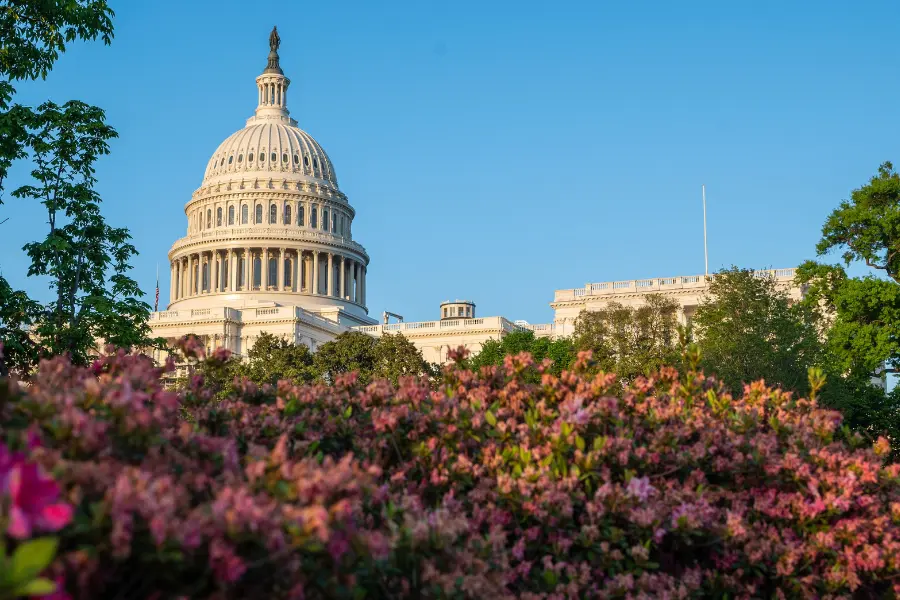The Las Vegas-based Innovation Group‘s 48-page report, made public in mid-November 2023, serves as a comprehensive analysis on the topic.
States such as Maryland can benefit from the experience of the six states that offer what the report defines as “iGaming” – especially New Jersey and Delaware, which each launched the activity back in late 2013.
They were followed by Pennsylvania (2019), West Virginia (2020), and Michigan and Connecticut (each 2021). Rhode Island citizens have approved the gambling as well, and that launch is scheduled to come as soon as March 2024.
“We considered spend per capita across those states, scaled to reflect market maturation over time, noting that each of the comparable states is at a different stage in its development,” according to the report. “We then multiplied the scaled figure by forecasts for Maryland’s gambling-age population to project gross iGaming revenue by year for the state.”
Given the fact that lawmakers have yet to pass a bill legalizing online casinos in Maryland, The Innovation Group conservatively projects a 2026 start date and three years “ramping up” of play, as consumer awareness of the option grows over time.
That delays the 100% revenue forecast to 2029, at which point annual iGaming Gross Revenue is projected at just over $900 million – based on a per capita annual spend of just under $200.
What Happens to Revenue for the State’s Other Gambling Products?
One of the key focuses for the Maryland officials who approved the creation of a report was to estimate the impact of iGaming legalization on the state’s casinos and lottery. That is important because if so-called “cannibalization” is too large, elected officials may question whether approving a new gambling product could actually be counterproductive.
The report looked at dollar figures from 2019 to 2022 for both 11 of the most relevant “Non-iGaming States” and the six “iGaming States,” and found that casino revenue grew an average of about 2% in the former category while declining just over 8% in the latter states.
“Since Maryland’s casino revenue is just over $2 billion annually, this would amount to a loss of just over $200 million in casino revenue, against a gain of $900 million in iGaming revenue,” the report concluded.
The same approach was made regarding lottery revenue from each category of states, and the difference was found to be “negligible.”
Supporters of online casino gaming legalization likely found that analysis encouraging – and the next two topics of bingo and off-track betting sites even more so.
While the six iGaming states don’t all have full parallels to these forms of gambling, the report noted that reviews of Maryland bingo halls often refer to them as “slot machines” even though there are technical differences.
“As such, we anticipate the impact of iGaming on electronic bingo machines to be approximately 10% – in line with the impact on land-based casino gaming.”
As for horse racing, the report authors point out that “we would categorize horse bettors as not having strong demographic overlap with casino clientele, which will skew younger and more female than predominantly older, male racing enthusiasts.”
For that reason, the report estimates that iGaming legalization impact there would be “near zero.”
Learning from the iGaming States
The Innovation Group also reviewed the results of iGaming legalization in other states to see if certain “best practices” should be used as a guide in Maryland. Before that, the authors consulted with nearly three dozen current and former legislators; regulators; land-based casino operators; and online gaming operators.
The conclusion was that New Jersey and Michigan should be the models for Maryland’s own iGaming legalization bill, “as those states have fostered healthy and burgeoning iGaming markets that produce economic benefit for both the state and the state’s existing casinos.”
Key aspects, then, would be having iGaming licenses tethered to existing brick-and-mortar Maryland casino licenses – links which mean that the latter facilities still get some financial reward even if the iGaming marketplace grows at a faster pace than expected.
Those two states’ moderate tax rates and regulatory oversights – including “reasonable responsible gaming requirements” – also were cited.
How many iGaming licenses would be ideal? The experts interviewed by The Innovation Group recommended following the practice of linking that number to the number of casino operators in the state – six, in the case of Maryland. The experts were split on whether six or 12 iGaming licenses would be the optimal number.
As for establishing a specific tax rate, the authors said that two nearly opposing factors must be weighed.
The much lower overhead costs involved in running an “iCasino” compared to a retail version – and therefore less job creation – weigh in favor of a higher tax rate for iGaming operators.
But most state regulators also seek to curtail the illegal, offshore online iGaming websites, and a tax rate that goes too high inevitably would result in legal operators being less able to market aggressively to acquire those customers.
Most of the experts suggested an iGaming tax rate in the range of 20% to 30%.
More than a decade ago, a large portion of the push for Maryland online gambling legalization came from the poker community. That’s because unlike the other table games, poker players need “liquidity” – that is, enough competitors being online at any given time, and at different levels of stakes, to keep would-be players interested.
The Maryland report by The Innovation Group incorporates the company’s state-by-state review of unregulated casino gaming that was commissioned by the American Gaming Association in 2022. The review found that nearly $200 million was gambled illegally at iGaming sites in Maryland last year.
The report makes reference to the Multi-State Internet Gaming Agreement (MSIGA) includes poker players in Nevada, Michigan, New Jersey, and Delaware. Maryland is one of the states that is not considered large enough to produce a robust online poker community with only state residents involved.







